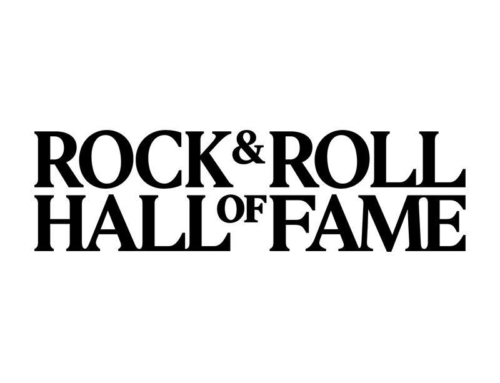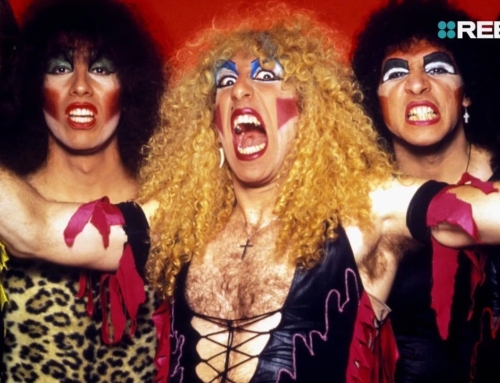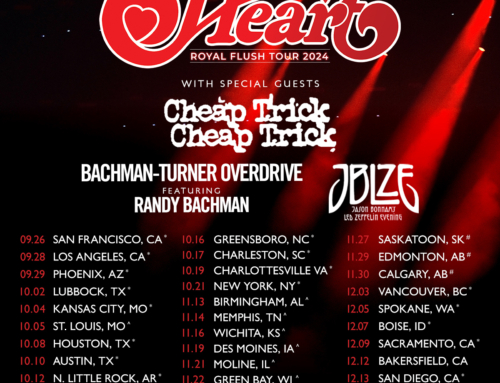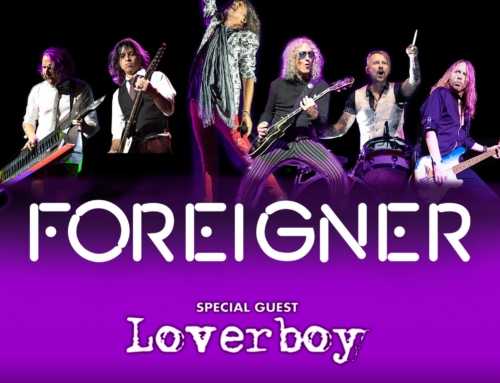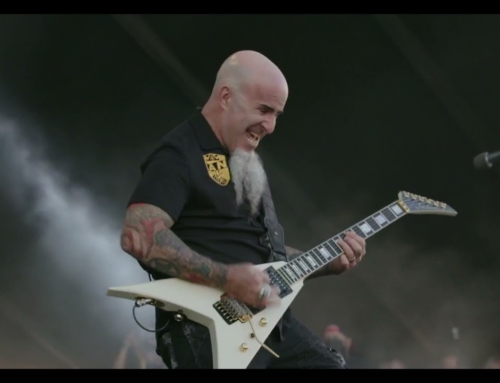Blues-rock hero Joe Bonamassa is partnering with Heritage Auction House to announce a game-changing NFT collection that stands to reshape the music industry forever by tokenizing the original master and publishing rights to a brand-new song titled “Broken Record”. This lot is truly unprecedented as the chart-topping guitarist is the first artist in music to sell his publishing in an NFT as part of this digital an d physical collection, which also features his own “Holy Grail” 1959 Gibson Les Paul Sunburst guitar and 1963 Fender Vibroverb amp that was used to record the song.
The auction is set for July 31.
Bonamassa calls this lot “the one-song record company” because it totally transforms the way musicians can make a business from their intellectual property. Joe‘s business partner Roy Weisman elaborates: “That is what this NFT concept gives artists — the opportunity to raise capital on an independent basis that will allow them to overstep the so-called gatekeepers of the music industry.”
“One of the things that I like about being an independent artist is that Roy and I came up with this idea,” Bonamassa says. “We didn’t have to run it up any sort of chain of command. It was like, let’s do this because it feels right. And it’s the next logical step in how independent artists are going to be on equal footing with major labels.”
Weisman says: “We’re now truly in a unique time in the music business where it is completely just supply and demand. People can find artists online anytime, people can buy their music, investors can invest in them with an artist having to go through that typical major label or even large independent label system that is heavily weighted against artists from the start.”
This history-making auction from the music-business revolutionary is far from routine; then, nothing Bonamassa does is ever ordinary.
Joe is breaking new ground in the music industry and playing by his own rules with this lot featuring highly collectible items, including not only some of the most prized musical instruments on the planet, but pairing them with a series of certificates of authenticity as cutting-edge non-fungible tokens (NFTs). The type of guitar has been used by rock royalty such as Keith Richards, Jimmy Page, Eric Clapton, Mike Bloomfield. The instrument with the “unmatched deep, throaty sound,” as David Schiller writes in his book “Guitar”, was the ax that built rock and roll.
Non-fungible tokens are changing the business world and Bonamassa‘s clever use of the new technology is now allowing other artists to build what is their own business. Bonamassa‘s auction is unique and stands to reshape how musicians make and sell their art. This incredible lot includes 13 items individually tokenized on the Ethereum blockchain. Each physical item will have a digital NFT component. This lot is a dream come true for any serious collector of vintage gear or NFT investor looking to diversify their portfolio.
It should surprise no one who follows Bonamassa‘s career that he’s leading this revolution. No guitarist has ever received as much coverage in the music and business media as the two-time Grammy Award nominee who has topped Billboard‘s Blues chart 24 times — at only the age of 44, no less. Only last year, in fact, Forbes heralded the guitarist for “taking control of his business, building a brand and investing in himself.”
Bonamassa, a wunderkind who opened for B.B. King when he was just 12 years old, learned early on never to trust the industry: His 2000 debut “A New Day Yesterday”, released on a Sony subsidiary, was a critical smash, with Billboard hailing the comer as “a bold talent who rises above narrow radio formatics.” Problem was that major labels have no time for bold talents who don’t get played on the radio. Bonamassa and Sony parted ways.
For many musicians, that would have been the end of the story. For Bonamassa, it was only the beginning of the beginning: In 2002, the guitarist and his longtime manager and business partner Roy Weisman created J&R Adventures — a self-contained label, management, marketing, and concert promotion company. Which has meant that for the last 20 years, they haven’t had anyone looking over their shoulder, anyone telling them what to do or where to go, anyone telling them no.
“We go against the grain by nature, and that’s how we’ve been successful,” Weisman says. “I’m not really looking to get the input of the industry because quite frankly, I think the mainstream industry won’t like independence. And with this auction, we’re going to show the world how to merge their copyrights, their intellectual property and sell it directly to an investor without a middleman like a major record company taking a major piece of the money and leaving them without any core assets. Now with the NFT, artists have an opportunity to build capital for themselves to then build what is their own business. And that is a beautiful thing. It’s a game changer.”
The way both men tell it, the idea of selling the guitar and amp and the song in a single auction lot was an easy one, just another inevitable next step in the evolution of their revolution. It took Weisman and Bonamassa all of 20 minutes to settle on the concept and its eventual execution, which resulted in a full-blown studio session during which the guitarist recorded something of which he’s extraordinarily proud … which no one, outside of the winner, might ever hear.
Joe explains: “If three people hear the song and that’s it, I’m still proud of the work. If it’s licensed for film or TV and everybody hears the song, even better. But the fact of the matter is, I’m proud of the song whether three people hear it or 30 million hear it. It doesn’t matter. My approach would not have changed. And in the end, we came to the conclusion that if we’re going to do this, let’s make a splash. This is going to be really cool.”



